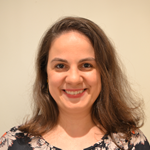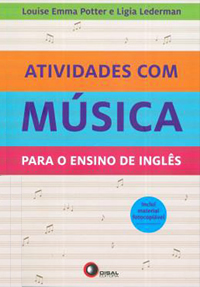By - Marcela Cintra

Often times we discuss the future of education, innovations, tools, content that may accompany the world we live in. Researchers and authors such as Freeman (2016) publish in-depth materials to boost the area of teacher education as well. If we are to make significant changes to education in general, teachers are a critical piece in the process. The only other fundamental part of education is the group of learners. However, these seem to be influenced by the changes promoted by their teachers, as they are interdependent gears of the educational machine.
In this article I will discuss four of the challenges and opportunities currently facing the field of teacher education. The difference between a challenge and an opportunity is the perspective of the observer and this text allows you, the reader, to choose the way you are going to face each of the outlined ideas to enhance teacher education in this diverse world.
Much has been discussed about who should be accountable for teacher education – or which of the stakeholders holds the largest responsibility? At the end of the day, we all seem to want to find better ways to reach and help learners and contribute to building a better world. Thus, generally speaking, we are all, regardless of our positions, accountable for bringing opportunities, opening doors or showing paths to teachers if by doing so we contribute to improvements in education.
There seems to be a consensus that teachers are accountable for their own development (Wallace, 1991; Rossner, 2017), but education is a broader concept, which entails training, development, in-service CPD opportunities. That means the teacher, schools or the government have their share of accountability in the process of teacher education. The sponsored professionalism (Leung, 2009) seems to account for the general needs, even though it is part of various contexts and has developed into multiple shapes to cater for the variety of needs and local applications. It is not necessarily one size fits all, but aimed at global objectives for education and learners, demanding a common ground for teachers to work on; whereas teacher development, the teachers’ share, may have an individualised perspective based on the teachers’ needs and wants that will contribute to their professional growth.
Teachers need to develop skills to deal with the VUCA1 world we live in, where constant changes (technological, for instance) or the number of variables (especially as we deal with the diversity of people) contribute to greater levels of unpredictability in the field of education. Finding different ways to reach teachers who seem to resist innovations, for instance, or opening up to experiment with a plethora of means to train or support teachers seem to be crucial to teacher educators. Changes in the format of courses, communication methods for teacher education may contribute to better following the changing world – we cannot expect teachers to develop new teaching skills and knowledge if their education is based on well-established ones that catered for the existing and predictable situations we were used to.
Woodward (1988) discussed the concept of loop input that emphasises the need for teacher educators’ change of approach to train teachers in ways that mirror what they expect their teachers to do in the classroom – experiential training that matches content and process of learning. From a broader point of view, teacher educators should become role models in bringing creativity to in-service or training situations that may inspire teachers they work with to find innovative ways to help their learners look at content in and outside the classroom to better deal with the world. In the C-Group2, teachers and teacher educators have been working together towards the spread of creative ideas to boost English language teaching.
Many decades ago, a teacher having concluded initial training would be successful for the rest of their lives and that may have been acceptable, especially as part of education aimed at developing learners’ knowledge by passing on pre-determined content. After research in teaching, learning and the world, building a repertoire of teacher techniques to deal with the ever-growing diversity of our world has become essential. In teacher education, it is even more important to prepare to deal with new goals, beyond well-established content, new tools, new teachers and learners. More than ever, teacher trainers/ educators need to be unstoppable and restless in developing trends, learning from the flexible and adaptable contexts; and innovating teachers’ growth and professional development to thrive in helping our learners. Their development affects teachers’ professional growth (Wright and Bolitho, 2007).
Preparation may include learning about improvements, for instance using technology in favour of teacher education to aid the spread of ideas and the growth of professional and productive networks where teachers can read about and discuss lessons in a wider variety of contexts even from a distance. Also, teacher educators need to be prepared to use feedback to empower teachers and to provoke reflection and meaningful change. If feedback is given in, haste and solely focusing on changes trainers want to see, there is the danger of generating resistance rather than resilience in teachers. That means trainers need to be catalysts of changes in teaching with preparation to accept that the outcomes of what is proposed may be completely different from what is aimed at, and perhaps better than expected.
Changes can be initially painful – we often seek the comfort of stability – and they take time. Teachers need time to develop a broader repertoire of skills, knowledge, and attitudes. A teacher who is starting a career now should not be expected to perform as someone who has been building his or her professional self for years. However, learners’ and leaders’ immediate needs and demands do not match the developmental needs of teachers. All of that in a world that is constantly changing, therefore altering people’s needs and wants. It is but a conundrum: we need to give time for teachers’ professional changes and progress to happen and at the same time changes are constant and rapid and demands immediate. If we wait too long, what teachers learn may be old-fashioned by the time they start applying new skills. Nevertheless, if learners and leaders perceive the developments occurring in the field, they may become used to such growth rate as they benefit from the constant changes that accompany their needs.
Overall, all stakeholders have their own share in making their best in providing creative solutions, being proactive in preparing themselves to develop and help others develop, allowing proper time for changes to happen and taking responsibility for the development of teaching and learning. It is definitely the complexity of challenges and opportunities in teacher education that makes all efforts worth it for learners and teachers towards positive change in the world (of education).
Contacts:
marcela.cintra@hotmail.com
https://www.linkedin.com/in/marcela-cintra-89570bb/
https://marcelacintra.wordpress.com/
Notes
1 VUCA world, originally a military term that stands for Volatility, Uncertainty, Complexity and Ambiguity. https://en.wikipedia.org/wiki/Volatility,_uncertainty,_complexity_and_ambiguity
2 The C Group aims at collaborating to ELT through collaboration and the spread of creative ideas. http://thecreativitygroup.weebly.com
References
Freeman, D. (2016). Educating Second Language Teachers. Oxford: Oxford University Press.
Leung, C. (2009). “Second Language Teacher Professionalism” In Burns, A. and Richards, J. C. (2009) The Cambridge Guide to Second Language Teacher Education. Cambridge: Cambridge University Press. PP. 49-58.
Rossner, R. (2017). Language Teaching Competences. Oxford: Oxford University Press.
Wallace, M. J. (1991). Training Foreign Language Teachers. Cambridge: Cambridge University Press.
Woodward (1988). Loop Input. Canterbury: Pilgrims.
Wright, T. and Bolitho, R. (2007). Trainer Development. Self-published/ Lulu.
LIVRO RECOMENDADO
